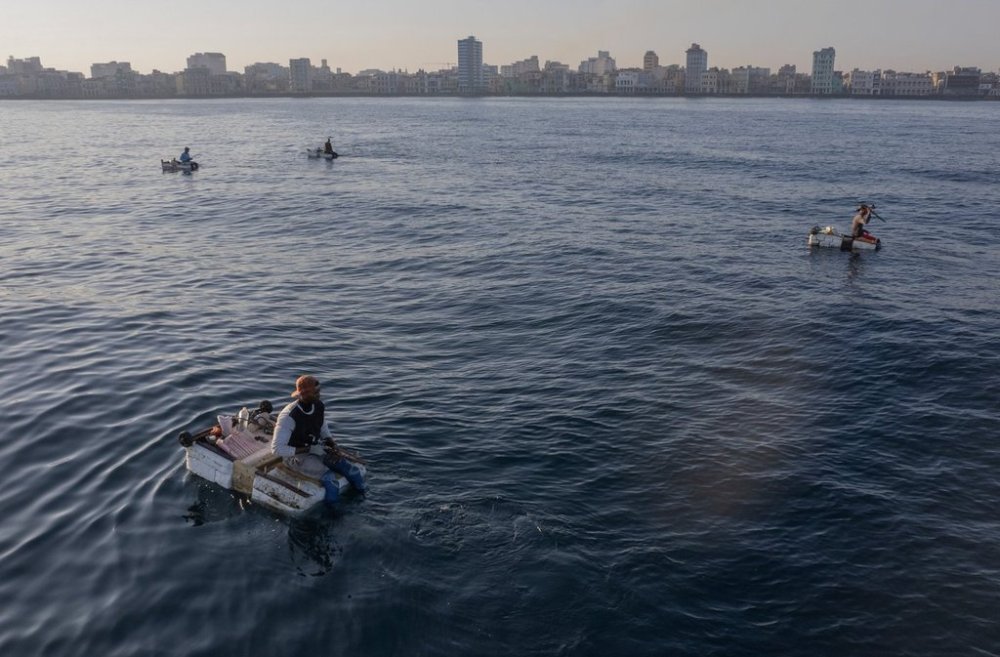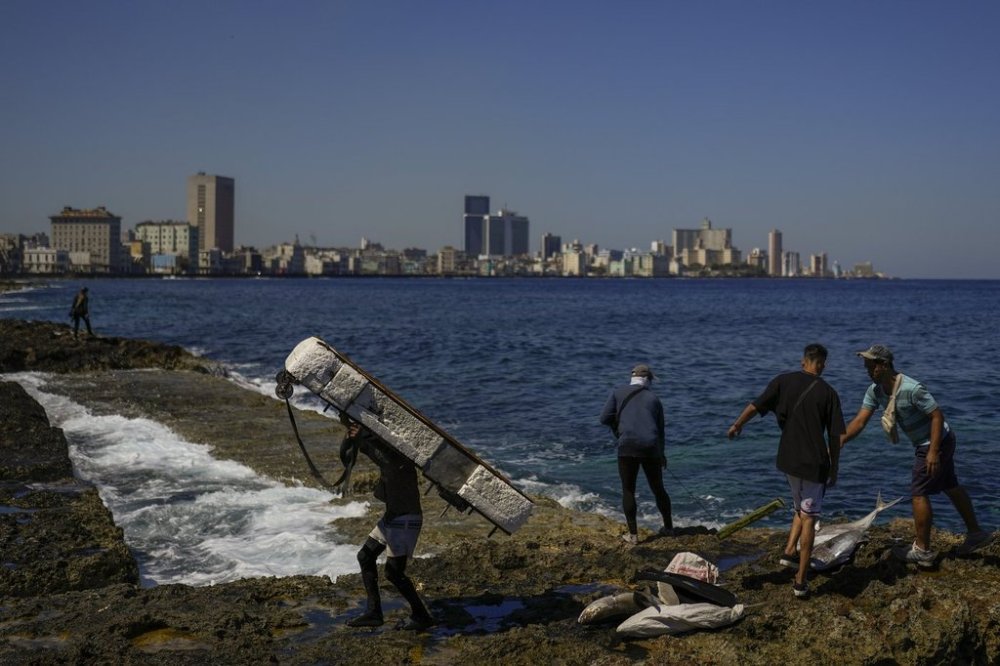Ingenuity at sea: Cubans use makeshift rafts known as ‘corchos’ to catch elusive fish
Advertisement
Read this article for free:
or
Already have an account? Log in here »
To continue reading, please subscribe:
Monthly Digital Subscription
$0 for the first 4 weeks*
- Enjoy unlimited reading on winnipegfreepress.com
- Read the E-Edition, our digital replica newspaper
- Access News Break, our award-winning app
- Play interactive puzzles
*No charge for 4 weeks then price increases to the regular rate of $19.00 plus GST every four weeks. Offer available to new and qualified returning subscribers only. Cancel any time.
Monthly Digital Subscription
$4.75/week*
- Enjoy unlimited reading on winnipegfreepress.com
- Read the E-Edition, our digital replica newspaper
- Access News Break, our award-winning app
- Play interactive puzzles
*Billed as $19 plus GST every four weeks. Cancel any time.
To continue reading, please subscribe:
Add Free Press access to your Brandon Sun subscription for only an additional
$1 for the first 4 weeks*
*Your next subscription payment will increase by $1.00 and you will be charged $16.99 plus GST for four weeks. After four weeks, your payment will increase to $23.99 plus GST every four weeks.
Read unlimited articles for free today:
or
Already have an account? Log in here »
Hey there, time traveller!
This article was published 26/03/2025 (226 days ago), so information in it may no longer be current.
COJIMAR, Cuba (AP) — From a distance, they look like tiny white dots floating on the sea. But get closer, and you’ll see people sitting on polyfoam rectangles.
They are fishermen floating on makeshift rafts that have become common on the waters off the coast of Havana, as Cubans find innovative ways to fish in a country where it’s complicated — if not impossible — to buy a fishing boat.
As dawn breaks on calm days, hundreds of fishermen set sail in their unusual rafts, known as “corchos” (or corks), along the coasts surrounding the capital, including Cojimar, a fishing village immortalized by Ernest Hemingway, who was passionate about fishing.

The “corchos,” which are usually made of polyfoam sheets pressed by aluminum rods, are about 2 meters long (6 feet) by 1 1/2 meters (5 feet) wide, creating enough space for a person to climb aboard with his fishing rod, reels, pliers and hooks. Most use oars, but some fishermen have installed small engines to ease the physical effort at sea.
They may not be pretty, but they float, and the fishermen claim they don’t sink regardless of how strong the waves might be.
“It’s in our blood,” said Miguel González, 36, proudly holding up an albacore tuna. “We enjoy it whether there’s fish or not.”
Equipped with water for their five-to-six-hour trips, these fishermen also rely on their ingenious “jigs,” handmade squid imitations of resin and iridescent paper, to lure large fish avoiding live bait.
For the “corcho” fishermen, who cannot afford to buy or build a boat, these makeshift rafts mean food on the table and, if the catch is good, some fish to sell at markets or restaurants for extra income.
A small boat in Cuba cost around $30,000, according to some of them, a stark contrast to an average monthly salary of $25. And although many Cubans receive remittances from family members in the U.S., it’s still not enough.
Despite the challenges, the “corcho” men are deeply passionate about their work and have formed a close-knit community.

“We help and support one another,” said Rayner Sánchez, a 35-year-old fisherman. “We all fish together here. If anything happens to one of us, we’re all in it together. Nobody fishes alone.”
____
Follow AP’s coverage of Latin America and the Caribbean at https://apnews.com/hub/latin-america

